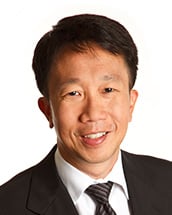In brief
The Singapore Association of Pharmaceutical Industries (SAPI) has released a set of guiding principles for patient support programs (PSPs). These guiding principles provide guidance on how PSPs should be designed.
In more detail
PSPs are activities or services offered by companies to benefit patients. These may go by different names, such as patient access programs, patient improvement programs, patient assistance programs or patient education programs.
There are different types of PSPs, including programs aimed to increase patients’ awareness and understanding of a disease or treatment, to better patient outcomes, to improve patient adherence to treatment, or to facilitate access to and reimbursement of a product.
SAPI has stated that when designing PSPs, companies should:
- Ensure that the PSP addresses a legitimate need to protect the interests of patients
- Establish the underlying rationale the program
- Clearly identify target patient groups and the eligibility criteria for the program, and ensure that the PSP is offered to all eligible individuals
- Ensure robust program governance and oversight from the project owner
- Have clearly delineated roles for third party service providers if the company is partnering with external service providers / organizations
Additionally, in carrying out PSPs, companies should not:
- Design and/or use PSPs for commercial purposes that may lead to the promotion of their products
- Influence healthcare professionals’ prescription of medications during the early assessment and treatment stages
As the conduct of PSPs would naturally involve patients’ personal data, companies should ensure that any collection, use, disclosure and management of such personal data are in compliance with the Singapore Personal Data Protection Act 2012.
Companies should also consider the applicable pharmacovigilance responsibilities should there be any suspected adverse event identified during a PSP.
* * * * *

© 2022 Baker & McKenzie.Wong & Leow. All rights reserved. Baker & McKenzie.Wong & Leow is incorporated with limited liability and is a member firm of Baker & McKenzie International, a global law firm with member law firms around the world. In accordance with the common terminology used in professional service organizations, reference to a “principal” means a person who is a partner, or equivalent, in such a law firm. Similarly, reference to an “office” means an office of any such law firm. This may qualify as “Attorney Advertising” requiring notice in some jurisdictions. Prior results do not guarantee a similar outcome.





